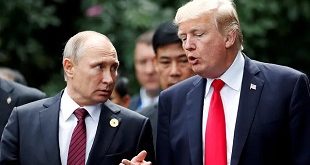
The Independent Team
The Independents Mubatsi Asinja Habati spoke to Dismas Nkunda, co-director of the International Refugee Rights Initiatives (IRRI) about the first review conference of the Rome Statute, which establishes the International Criminal Court (ICC).
How did ICC choose Uganda?
I don’t know. There is a notion that they wanted to have the conference in Africa. Uganda is one of the first countries that referred a case to ICC. There have been accusations that the ICC is targeting African states, five of the courts 11 cases are from Africa, the first sitting head of state to get an arrest warrant is from Africa. Taking the review conference to Africa was showing that the ICC is for Africa too. Again Africa has the biggest block state parties to ICC – 30 out of the 111.
What articles in the Rome Statute needed to be amended?
There was contention on how to define the crime of aggression. In the end state parties failed to agree. The crime was loosely defined in order to cover countries that felt uncomfortable. The US was not comfortable with the definition of the crime of aggression in spite of not being party to the Rome Statute because immediately they might have been taken to the courts for the various places they have attacked unilaterally. In the end they reached some compromise on the crime of aggression which can be tried by the ICC but it must only be referred by the Security Council. This makes it complicated because most of the time the powerful countries are the aggressors at the same time they are the permanent members of the UN Security Council. Initially the idea was that the ICC would initiate its own investigation into the crime of aggression. They also agreed that the prosecutor can initiate his own investigation under the crime of aggression but upon a request from the pretrial chamber of the ICC. This makes the judicial process complex.

What other issues were tackled during the review conference?
There were resolutions to amend Article 8 which is about the use of certain poisonous chemicals and gases in a conflict not of an international nature. In the end the conference resolved to include the use of such gases as a crime triable by the ICC. The conference also opted to retain article 124 where some of the country’s nationals would be excluded from being prosecuted for allegedly committing crimes by its nationals for a period of seven years until another review conference is held.
How did the stocktaking exercise go and what did it look at?
Delegates wanted to look at the impact of the activities of ICC on the victims of war like the affected communities in Northern Uganda. It was resolved that these people should have the right to access equal and effective justice support and adequate reparation for harm suffered during the conflict. A trust fund was set up to help such people.
States were asked to try the perpetrators of crimes at lower rank as a way of complementing the work of the ICC. The objective is to strengthen the judicial mechanism of countries where such cases are happening. It also required states to cooperate with others in trying crimes against humanity. These were resolutions not amendments.
States were obliged to cooperate with the ICC particularly in the execution of arrest warrants for effective operation of the court. However, cooperation is not enforceable. It is a question of the willingness of the state. If President Umar Bashir landed in Uganda tomorrow, would Uganda arrest him? Under the Rome Statute we must because we are signatories but for political expediency would we?
How binding are these resolutions?
They are binding because states agreed on them since each country that is a signatory to the Rome Statute was represented at this conference. It binds them as long as they are signatories to the final document.
What was unique about the conference?
It highlighted the interplay between peace and justice. The ICC has got a clash of interest on how to sequence peace and justice; which comes first? Do we take them in tandem? Can we know what impact justice can have on peace? Should you pursue justice in the time of war or should you wait until there is calm? In the end, it was recognised that amnesty is not an option for serious crimes under the Statute.
What did the conference achieve?
We were able to discuss with the state parties, speak with the prosecutor’s office and tell them what the ICC is capable of achieving, its impact in terms of its decisions to initiate investigations in particular places and not others. How does the court operate effectively without being seen as a political stooge or used by politicians to advance their agendas? I think having a conversation about it was a useful.
Basing on the objectives of the conference, how would you assess its success?
Other than the not so strong amendment and definition of the crime of aggression, I think the adoption of article 8 of the Rome Statute which brings the crime of using poisonous gases to kill people was very important. We told the delegates to look at the ICC’s impact economically, socially and politically. If you came to northern Uganda and decided to prosecute Kony and his commanders, how about the UPDF; did it commit crimes? What do you do to the victims of this war? The stocktaking exercise was exciting because ordinary people were able to input into that discussion. Maybe it will have an effect on the future operations of the court.
What did the conference fail to do?
Politics took the greater part when it came to discussing the crime of aggression. I would have wanted the conference to retain the initial definition of the crime instead of the weakened one that was adopted. It makes those powerful nations which are often the culprits not accountable.
 The Independent Uganda: You get the Truth we Pay the Price
The Independent Uganda: You get the Truth we Pay the Price



